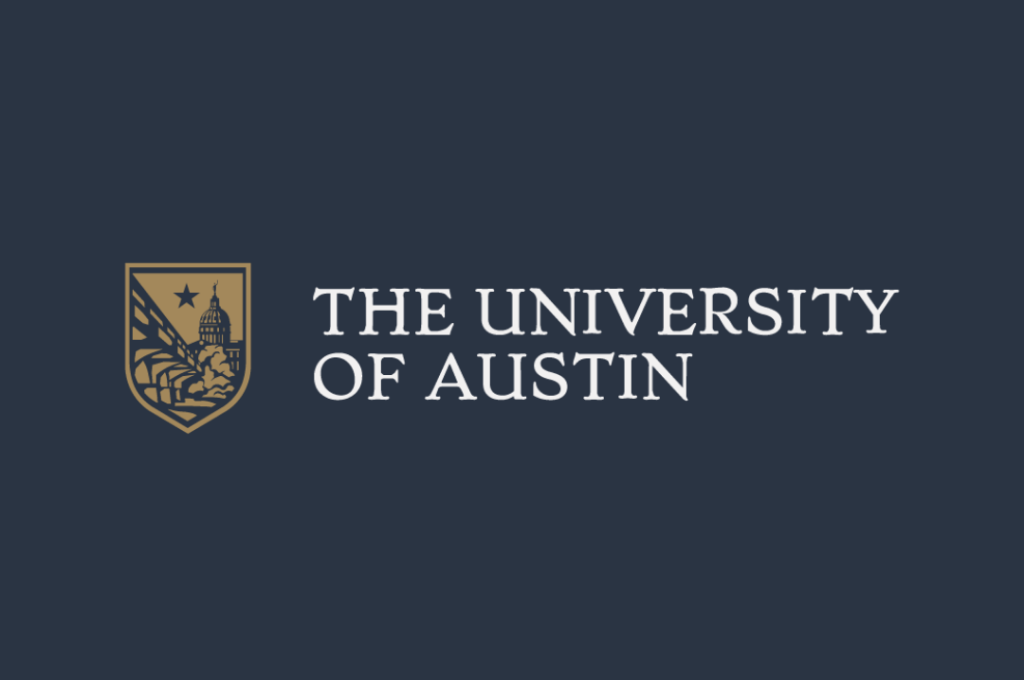The University of Austin, America’s newest university, was launched this month. I am one of five founders, because I am convinced that higher education is at considerable risk. A new ideology — sometimes called social justice, and revealed in numerous ways, but most succinctly called “woke” — is taking a huge toll on the free exchange of ideas.
Safe spaces and trigger warnings are demanded by students, and many faculty as well, rather than recognizing that challenge, risk, and discomfort create strength of will, and wisdom. Instead of being the adults in the room, scared and hapless administrators capitulate to their demands.
We are told that borrowing from other cultures is inherently predatory — “cultural appropriation” — rather than being one of the most ancient ways that humans have expanded our repertoire, making connections between both people and ideas. We are asked to believe anew in original sin, this one based on skin color. Faculty and students who step outside of the new orthodoxy risk being ridiculed, shouted at, even chased off campus. Tenure means nothing when a mob is at the door. The very concepts of objective reality and merit are taken to be offensive at best, outdated and untrue at worst.
These are instantiations of a self-limiting ideology that mocks the very premises of America’s founding documents, and of the mottos of many established universities as well. Harvard proclaims veritas; Yale adds lux to the mix. But there is little truth in the woke ideology, and little light.
;768:[300×250,336×280,320×100];0:[300×250,320×100,320×50]”]These manifestations of the new ideology are a caricature of deep thought, from the naivete of the beliefs to the insistence that they not be questioned. But there are forces older and yet more influential in play, which for decades have bent research and curriculum to their will.
The culprits in this decades-long process are many. We have seen the subordination of content to resort-like offerings for students, and bloated administrations. The education of undergraduates has been offloaded to grad students and adjuncts, in order to free the most ambitious faculty to dedicate themselves to grant writing. The grants themselves all too often arrive with strings — sometimes invisible, sometimes not — which drive the direction of research, facilitating some research programs, while driving others extinct. Theoretical work, which often brings in no grant money, has been eclipsed by data collection, which does. In a world calling for more generalists, who have the ability to cross disciplinary divides, we instead see the ever-increasing specialization of faculty, and therefore of the students.
All of these things lead to an academy in which some questions are never explored, when what we need is utter freedom of inquiry. The search for truth is an apolitical activity, and a necessary one.
Allow a medical analogy, if you will. Sometimes when a person dies, what is put on their death certificate is true at one level, but incomplete. We desire concise answers and simple prescriptions, but the causes of illness are often complex. A person’s death certificate may say they died of the flu, but if they were in their eighties, they were surely made vulnerable by age, and only pushed over the brink by influenza.
Like that elderly patient, higher ed is in danger, at risk of being pushed over the brink by an epidemic of wokeness — an epidemic that has managed to compromise every single institution nearly equally. But wokeness was only able to take hold in an educational body that had been left defenseless by a kind of analytical immuno-deficiency: terrible ideas took over a system in which new ideas, and the discussion thereof, were increasingly rare.
;768:[300×250,336×280,320×100];0:[300×250,320×100,320×50]”]It would never have happened had our universities been vibrant and healthy. There would have been no appetite for it in a system that generally provided good value to students, awakening their minds and enhancing their capacity and insight, while providing faculty true and unfettered freedom of inquiry.
Our institutions haven’t been healthy in a very long time. While it is true that they have only recently begun actively miseducating students, this came after decades of generally failing to educate them.
The challenge before the newly launched University of Austin is therefore this: can we build a new kind of institution that once again fosters a culture not just of competence, but of insight? One where the authoritarianism and self-flattering assertions of the woke would persuade no one? One in which analysis and creativity, exploration and discovery, are pursued by all? Can we, in some sense, spark a new Enlightenment?
I believe that we can.
Doing so is not simply a matter of creating a non-woke university, however. That is necessary, but it is far from sufficient.
Imagine a university in which entire humans are engaged, not just as brains to be filled with facts, or as future workers, or payers of tuition. Imagine a university in which everything can be questioned, but the old is not thrown out simply because it is old, nor the new adopted simply because it is new. Imagine a university that is actually capable of addressing the injustices that wokeness is supposed to be about. Imagine a university in which all of the faculty know something of value, know how to communicate it, and have an unflinching belief in the fundamental humanity of all of their students.
;768:[300×250,336×280,320×100];0:[300×250,320×100,320×50]”]There is hunger for all of this, from students and faculty alike. People want to think new thoughts and strange ones, to experiment and question, and to have the freedom to change their minds.

























